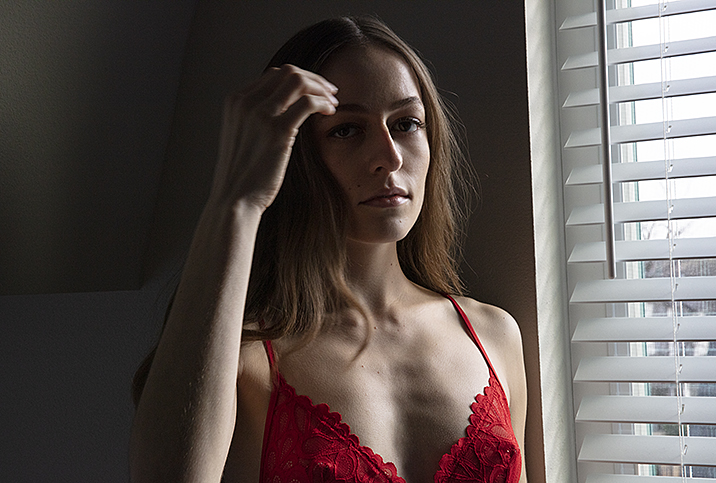Easy Access to Birth Control Is Not a Guarantee

Living in the United States, many of us take our advantages for granted, such as our access to education, information and even healthcare. Unfortunately, despite all the advantages we have, it may be hard to believe that access to birth control is not a guarantee for some people.
Birth control access in the United States has a tumultuous history. It wasn't until 1960 that the first oral contraceptive was approved by the Food and Drug Administration (FDA). However, even before that, women choosing to have or not have children was a major topic of debate.
While access has expanded, many individuals still have a hard time finding and affording birth control. Planned Parenthood Keystone CEO Melissa Reed told us, "Healthcare is still inaccessible and out of reach particularly for low-income and marginalized groups, such as the LGBTQ population or BIPOC members of our community."
Birth control access in the United States
Once safe and effective forms of contraceptives, such as diaphragms, the pill and condoms, were readily available, organizations like Planned Parenthood were able to get these methods into the hands of women. Despite the legality of the pill, this hasn't stopped private businesses and religious institutions from trying to impose their perspectives about reproduction on women.
In fact, since the Roe v. Wade decision of 1973, 46 states have created legal frameworks that allow private and religious healthcare facilities to deny various forms of birth control, ranging from contraceptives to sterilization and even abortions. The Roe v. Wade ruling prevents federal laws from infringing on the rights of individuals and privately owned institutions. While this can be frustrating, it also ensures an employer cannot impose their religious or personal views on their employees.
Barriers to birth control
The unfortunate reality of this situation is that women continue to face obstacles in accessing birth control. In fact, according to the American College of Obstetricians and Gynecologists (ACOG), women who seek birth control from religiously affiliated institutions are more likely to be denied contraceptives, and many of these same institutions oversee the local pharmacies where these women would have these prescriptions filled.
Unfortunately, this can mean that many women living in rural areas throughout the country do not have an alternative for care within their local community. These women are faced with the financial burden of traveling long distances, sometimes hundreds of miles, to a major city where an alternative facility would be willing to prescribe and dispense their contraceptives.
As a result of these barriers, some women may wish to elect a permanent option such as tubal ligation, which offers permanent pregnancy prevention without a continuous financial strain. Unfortunately, the idea of elective permanent sterilization is also a topic of debate that leads many physicians to deny this procedure for reasons of paternalism (the belief that they know what's best for their patients), even though these women have a right to make this decision.
Nonprofits, such as Planned Parenthood and other public agencies, offer contraceptives and family planning services that ensure safe and affordable care to any individual.
A 2018 Kaiser Family Foundation report indicated that "another challenge to the availability of sterilization services is the growing number of acute care hospitals that are affiliated with the Catholic Church. These hospitals must adhere to the religious restrictions required by the U.S. Conference of Catholic Bishops, which prohibit the use of sterilization."
According to Rebecca Kluchin, Ph.D., associate professor of history at California State University, Sacramento and author of "Fit to Be Tied: Sterilization and Reproductive Rights in America, 1950-1980," paternalism has a long history in decisions about women's access to contraceptives.
"The issue now is related to access to surgery and continued ideas within medicine about who should have access to permanent contraception as well as persistent doubts about women's ability to make the decision to use permanent contraception," Kluchin explained.
Unfortunately, another barrier for many women is the need for a prescription to obtain birth control. While this requirement is intended to ensure that women are using the best interventions for their body, it has the unintended consequence of allowing insurance companies to dictate what forms of birth control women can use based on what's covered and what's not.
Furthermore, a July 8, 2020 U.S. Supreme Court ruling allows employers to refuse to pay for contraceptives covered under their employee insurance plans. This means that even if a person is prescribed contraceptives, they may not be covered, leaving potentially millions of women paying out of pocket to prevent unwanted pregnancies.
The most recent study shows that as many as 45 percent of pregnancies are unintended. While this rate represents a decrease for the United States, according to the Centers for Disease Control and Prevention (CDC), we will likely see an increase in the coming years as the effects of this new ruling play out for women across the country.
Where to go for birth control
With so many barriers to care, what can women do to protect themselves from unwanted pregnancies? The answer comes in the form of nonprofit healthcare facilities that have the authority to use the same Supreme Court guidelines that allow for the denial of care to ensure care.
Nonprofits, such as Planned Parenthood and other public agencies, offer contraceptives and family planning services that ensure safe and affordable care to any individual. "We must meet each patient as an individual with no shame, no judgment, just pure compassion and expert medical care," Reed said.
These agencies provide sliding scales that offer payment plans for contraceptives or can provide prescriptions that women can use to seek contraceptives through mail services. Furthermore, Reed explains that at Planned Parenthood, "Our staff can help to set income-based fees and help our patients to apply for Medicaid to help with the cost."
With so many barriers to effective and safe contraceptive methods, nonprofit agencies and private medical providers are available to help you find the contraceptives you need, so you can take control of your health, regardless of the obstacles you face in finding care.

















